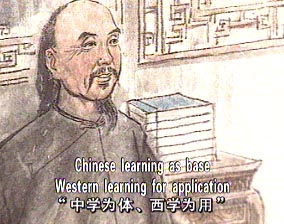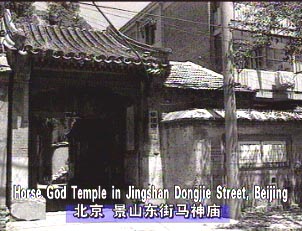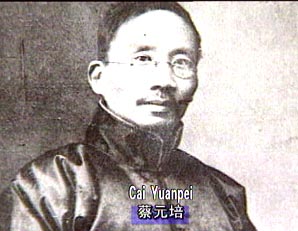 |
|
Metropolitan University  |
| CCTV.COM 2002-07-22 10:07:57 |
|
In September 1898 Empress Dowager Cixi launched a coup d'etat which declared the failure of the vigorous reform movement. Almost all reform measures were annulled. Of all things that survived the coup d'etat, the Metropolitan University founded during the reform movement is notable. The university didn't open until the end of 1898. For the reformers, this only surviving fruit of their movement was more or less a solace.
 The Opium War in 1840 demonstrated to some Chinese intellectuals the gap between China and the West. The enlightenment thinker Wei Yuan proposed that China could not be strong until it trained people with special capabilities. Later the principle "Chinese learning as base; Western learning for application" was formed. Some people tried to learn Western science and technology while maintaining the traditional ethics. The Opium War in 1840 demonstrated to some Chinese intellectuals the gap between China and the West. The enlightenment thinker Wei Yuan proposed that China could not be strong until it trained people with special capabilities. Later the principle "Chinese learning as base; Western learning for application" was formed. Some people tried to learn Western science and technology while maintaining the traditional ethics.
From the middle part of the 19th century the Qing government promoted the Westernisation Movement and founded a number of new schools. These schools trained a number of engineers and military specialists. In the eye of the Qing government these people were urgently needed. It seemed that with the Western know-how China's problems would be solved. However, China's defeat in Sino-Japanese War of 1894 greatly upset Chinese people.
“Chinese began to know others' powerfulness after the Opium War, and began to learn from others. But the result was a defeat. Why? Some sober-minded Chinese intellectuals began to seek new directions,” said Guo Jianrong, professor at Beijing University.
Intellectual reformers realised that to survive China must radically transform her education and cultivate people who absorbed new ideas. A comprehensive modern university became an urgent need. In 1896 Emperor Guangxu ordered his minister Sun Jia'nai to prepare the Metropolitan University. In 1898 when the reform movement reached its climax, the founding of the university was put on the agenda. At last the plan was fulfilled.
 At the Horse God Temple in today's Jingshan Dongjie Street we can still see the site of the university. Its scale bore no comparison with that of a present-day university. But it was the beginning of China's modern higher education. At the Horse God Temple in today's Jingshan Dongjie Street we can still see the site of the university. Its scale bore no comparison with that of a present-day university. But it was the beginning of China's modern higher education.
“The Metropolitan University of that time was not only an institution to cultivate people, but the highest national education administrative organ. Besides, it was prescribed that publications of the translation bureau must be revised by the university head and newspapers published in different places must be passed by Metropolitan University to the emperor for revision,” said Wang Xuezhen, professor at Beijing University.
It was there that the first complete modern education system was worked out. This led to the cancellation of the thousand-year imperial civil examination system in 1906.
 In 1912 the Metropolitan University was renamed Beijing University and the famous thinker Yan Fu became its first principal. In 1916 Cai Yuanpei took over the office. It was his vigorous management that rejuvenated the university and made it the source and centre of the May Fourth New Culture Movement. In 1912 the Metropolitan University was renamed Beijing University and the famous thinker Yan Fu became its first principal. In 1916 Cai Yuanpei took over the office. It was his vigorous management that rejuvenated the university and made it the source and centre of the May Fourth New Culture Movement.
|
|
|
|
|
|
|
 |









